In the fifth of our Old Hands series we probe the memories and minds of some of the founding fathers and original influencers of Toronto’s restaurant scene.
This week we speak with J. Charles Grieco, a bona fide icon of our country’s hospitality community. Opening the famed and hugely influential Toronto restaurant La Scala in 1962, Grieco steered the establishment through 35 years of excellence in hospitality, service, and fine Italian cuisine.
Since 1977 he has sat as both the Chair and President of the Ontario Hostelry Institute and is Managing Director of the Canadian Hospitality Foundation, helping to raise millions of dollars for student awards and support under the aegis of those organizations.
Just recently Grieco was awarded the degree of Doctor of Laws, honoris causa, from the University of Guelph, College of Business and Economics and the School of Hospitality, Food and Tourism.
Good Food Revolution: Hello Charles. Now how long have you been involved in the Toronto hospitality industry and where did you get your start?
J. Charles Grieco: It all began in 1960, and some 54 years later, I am still involved, fully engaged, fascinated and learning. And of course at the founding of La Scala.
GFR: And although this is a huge question, what are the most significant changes that you have seen in the dining scene over the decades?
JCG: We have opened our eyes and taste buds to what is happening around the world, on the tables of the world, and what is available in the markets of the world and of course, what is available ‘fresh’ and seasonally in our own region, Province and Country and sourced by our knowledgeable suppliers, amongst them to name a few: Monforte Dairy, The Healthy Butcher, Hilite Fine Foods, Gelato Fresco, Cumbrae Meats, The Cheese Boutique, Marc Thuet’s Breads and many more.
However, my thing with restaurant food is NOT the glitzy stuff that grabs 99% of the food-world buzz, the blogs and the ‘pop-up’ e-mailed critiques: all that itty-bitty three-star preciousness, often, tortured to death on the plate, rarely served at the proper temperature, far too clever for its own good. Where is the TASTE, the FLAVOR, the AUTHENTICIY, the REAL and underscored by the adage, ‘less is more’ is still very true
GFR: How do you feel about Toronto as a restaurant city? Do you feel as if we are world class in this department or do we still have some way to go?
JCG: Lets NOT talk about ‘world class’, lets talk about where we were and where we are today.
We are trying at times too hard to emulate what is happening in Scandinavia, Spain or South America – we can be so much more when we do our own thing on the plate using the local, the seasonal and the authentic and giving it the authenticity it deserved and showcasing the tastes and flavors that are inherent in the products we are using as exemplified by a large number of our creative young chefs and culinarians.
A caution, as Jim Morris of Stratford Chefs School pointed out recently in GFR = when he asked the question as to whether … “Toronto will ever have the market (let alone the kind of support systems that sustain[ed] the Adrias of this world) to sustain grand restaurants of the kind that Canadian foodies (his word not mine) patronize when they travel. Clearly, the prevailing mind-set is, if you are going to devote that much time, energy, and money, to gastronomy, do it in France, or Japan, or, more recently, in some places in Spain and the USA or at NOMA”.
Unfortunately, over the years, this has been all too true, from personal experience. Maybe, the arrival of named chefs will help to change this.
GFR: What with a number of New York Chefs opening outposts in Toronto, what do you think that this says about the evolution of our dining scene, and perhaps more poignantly global dining as a whole?
JCG: David Chang, David Boulud, Jonathan Waxman, the Chase Group, the O & B Group, The Landmark Group, Borealis Grill House and other culinary entrepreneurs have all recognized that Toronto is a viable market and that the dining experience has become a mainstream event and much appreciated and not just a special occasion happening – we have travelled, we have experienced and we want that same experience in TORONTO
GFR: Message boards such as Chowhound often bemoan the lack of polished service in Toronto and Canada? Do you see any truth in this? and what in your mind makes for good service?
JCG: Absolutely! We do not have a service culture and more importantly, we do not have an ‘enlightened’ hospitality culture. Danny Meyer of the NYC’s Union Square Hospitality Group has done more to point this out and demonstrated this ‘competitive advantage’ than anyone else.
Much too often we confuse the word ‘service’ with ‘hospitality’. They talk about a restaurant having good service, which means the food gets delivered to the right person in time, either hot, cold or room temperature as appropriate and wine, hopefully, properly poured. Skills that are very necessary, but that can and should be taught, learned and constantly reinforced through training, are not the sole component of hospitality.
Hospitality is more. It’s the server reading that we want to be left alone, that we don’t want her to automatically describe what kind of breads that are being served. Great hospitality is taking however we felt before we came to the table, and making us feel a little better when we leave.
GFR: Over the years, where have you experienced the best service in Toronto?
JCG: The O & B Group, Franco Prevedello in the early years, Nota Bene, Scaramouche, The Chase group and Colette of late – all have understood that there is more to service than well-honed skills and have scaled up to embrace hospitality.
GFR: Does the future of the independent restaurant in Toronto look bleak or blissful from your point of view?
JCG: Neither, in many cases, ‘promising’ would be a better word.
GFR: “No-shows” can be the death of a small establishment. What do you feel can be done (legally) to combat such situations?
JCG: Difficult at times, but you could ask for a credit card when taking reservations, if the caller is not a regular customer, and strongly imply that a charge will be made for ‘no-shows’, unless advised at least six or eight hours ahead of the time requested.
GFR: So do you feel that a “no reservations” policy is a sensible solution for a smaller restaurant?
JCG: That is not an easy question to answer – hot, new smaller restaurants, and we have several in Toronto, thrive on line-ups, but that turns many off and that is simply what happens when our blogs and e-mail pop-ups recommendations and quasi critics make them the ‘flavor of the day’ – experienced operators will know how to handle this, as will time itself.
Everyone wants the Saturday morning, 9 am tee-off time, but reality says otherwise. It is not possible!
GFR: How do you feel the recent increase in minimum wage in Ontario impacts the restauranteur,?
JCG: They will absorb it, as will the customer sooner than later. Staff in restaurants and dining rooms needs a living wage too, and should not be treated or expected to work for any less that any other service provider.
GFR: Getting into the area of tips? Do you feel that serving staff should payout something to the house for breakages and the like? What do you feel is fair or are such expenses just a cost of doing business?
JCG: Careless actions have consequences and responsible staff and management understand that and will act accordingly and should accept managements decisions. Accidents that cannot be prevented happen and reasonable management understands that too, and acts accordingly.
GFR: And what are your thoughts on the recent case regarding Mario Batali settling a lawsuit regarding skimming of tips to the tune of $5.25 million?
JCG: This is about ‘getting caught with your hand in the cookie jar’ when you know very much better! In my mind it was inexcusable, plain and simple and a just verdict rendered.
Again, irresponsible acts have consequences and if staff and management are not in sync with the actions surrounding service charges from the very start, then employee rights will prevail – lessons will be learnt – openness and transparency must be the rule.
GFR: On the subject of restaurant critics, do you feel that any are worth their salt?
JCG: There are some critics who go to work because they’re looking out for the consumer, and if they know food and hospitality, they can be and should be very helpful to us by constructive and balanced reviews and criticism.
There are others who are just competing with one another or simply want their names in print or seen on the internet, or who really don’t understand the subject of food, and the culinary work involved, and their reviews end up being more about their big voice within their reviewer and cyber space community and are unfair, faulty and not worth the time to read or to be seen or to be listen to.
GFR: And how do you feel about the legitimacy of guides like Zagat and its ilk?
JCG: They are quick guides, worth noting but not the final opinion carved in stone. They are the opinions of many that have been collected and assembled and that is not too bad – but they are only guides!
GFR: And then of course we have the democratization of food writing… food bloggers… where do you stand on this particular issue?
JCG: Some excellent, others not so and you must edit and curate this ‘pop-up’ medium, which is available to all, with or without credentials to make such comments using their smart phones, iPads and lap tops.
GFR: It appears to me that the restaurant goes through very obvious trends in its restaurants (tacos, bacon on and in everything) I’d love to hear your thoughts on this topic?
JCG: Trends may be fun, but that is their context. We are professionals in the main, and as I have said and intimated earlier, food and the culinary disciplines are serious matters, in fact genuine professions, for both the consumer and the practionner and should be expected to be treated as such
GFR: And what, in your sage wisdom, do you predict for the future?
JCG: Again, food and the related culinary disciplines are serious and matter and since time began will evolve, and those that know their business will thrive and survive and bring great satisfaction to their consumers
GFR: Food Television has exploded over the past 10 years… how accurate a portrayal do you feel it paints of our industry?
JCG: Some explain, teach and impart knowledge and understanding with truth and honesty, others are for show and entertainment, no more no less, and so-called reality cooking shows and chefs are amongst the latter class.
GFR: Canadian wines have come a long way since I arrived in Canada 17 years ago. Do you still feel that there is a resistance to them in some quarters? And why do you think that could be?
JCG: To an extent that is a ‘generational’ thing. It is still the Old World vs the New World wines, and this applies to our emerging ‘craft beers’ too, I am happy to say, while I am in both camps but do recognize that the latter, New World, and the well-made Canadian/Ontario VQA wines have earned a place and have arrived front and center on my table! Sorry, with a bias towards our own Ontario and NY State Rieslings.
GFR: Is there anything else you would like me to touch upon?
JCG: If I can leave you today with but one thought related to me by many other professionals of our industry, and that has served me well and many others too … it is this ‘ … In a business ruled by a passion for people … and hospitality, keep in mind that success in this industry … and in any of its related paths is a careful life-long journey of learning, listening, flavors and tastes … not a destination.’
GFR: Charles, thank you very much for your time.
…
 Edinburgh-born/Toronto-based Sommelier, consultant, writer, judge, and educator Jamie Drummond is the Director of Programs/Editor of Good Food Revolution… And it was an honour to to interview the venerable Mr. Grieco.
Edinburgh-born/Toronto-based Sommelier, consultant, writer, judge, and educator Jamie Drummond is the Director of Programs/Editor of Good Food Revolution… And it was an honour to to interview the venerable Mr. Grieco.


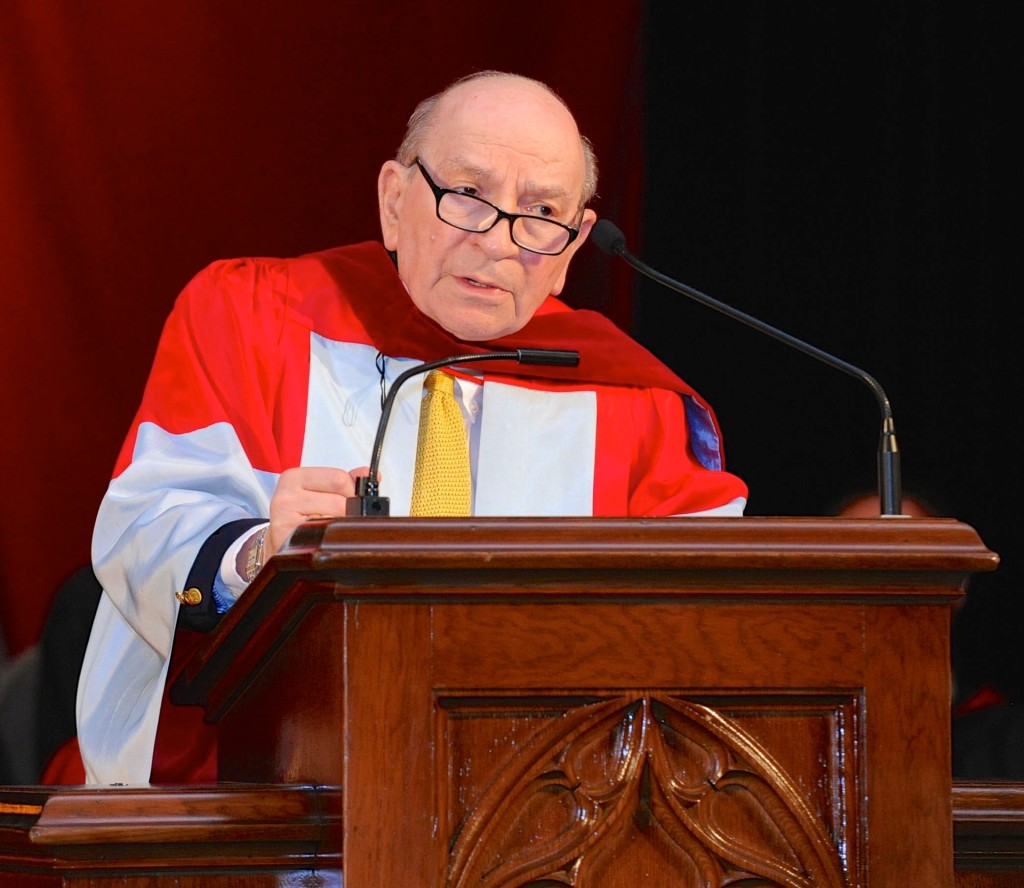
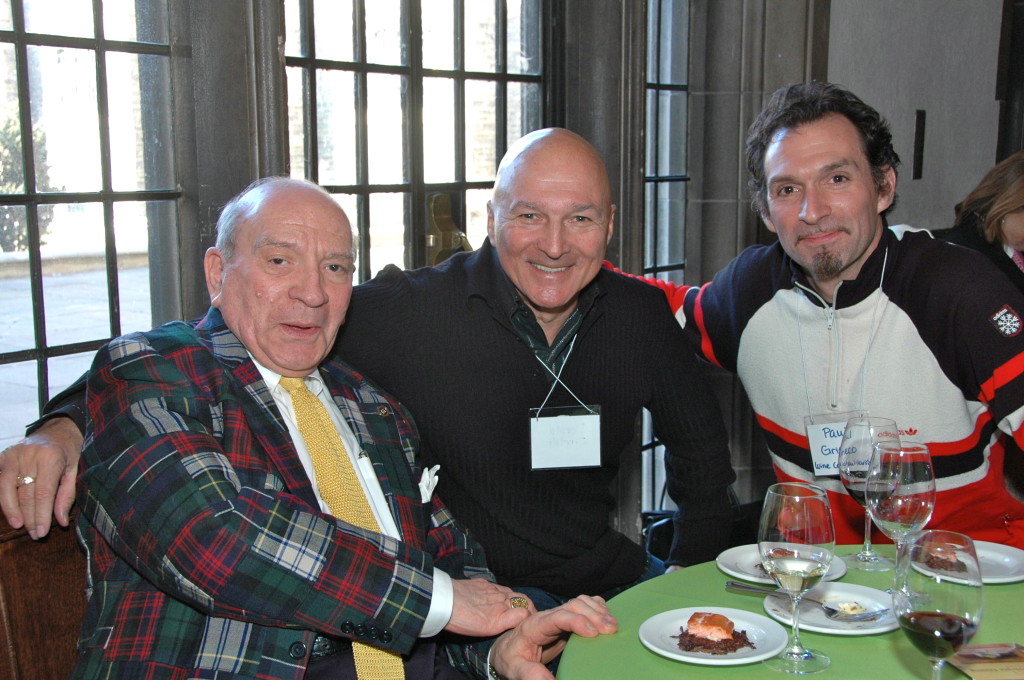
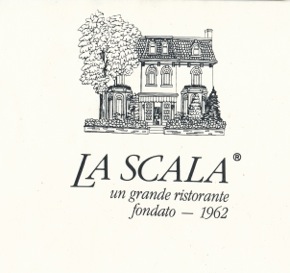

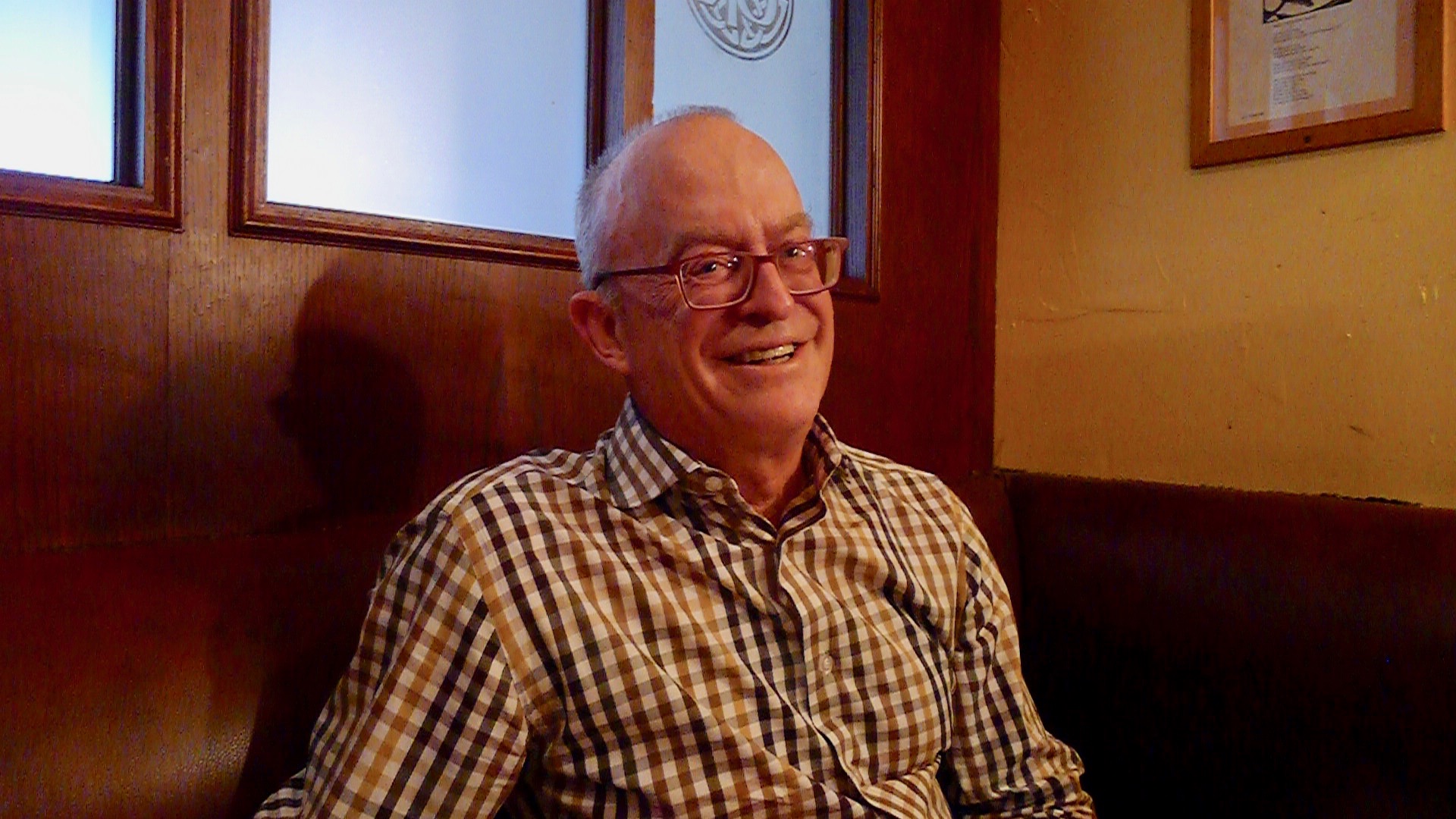

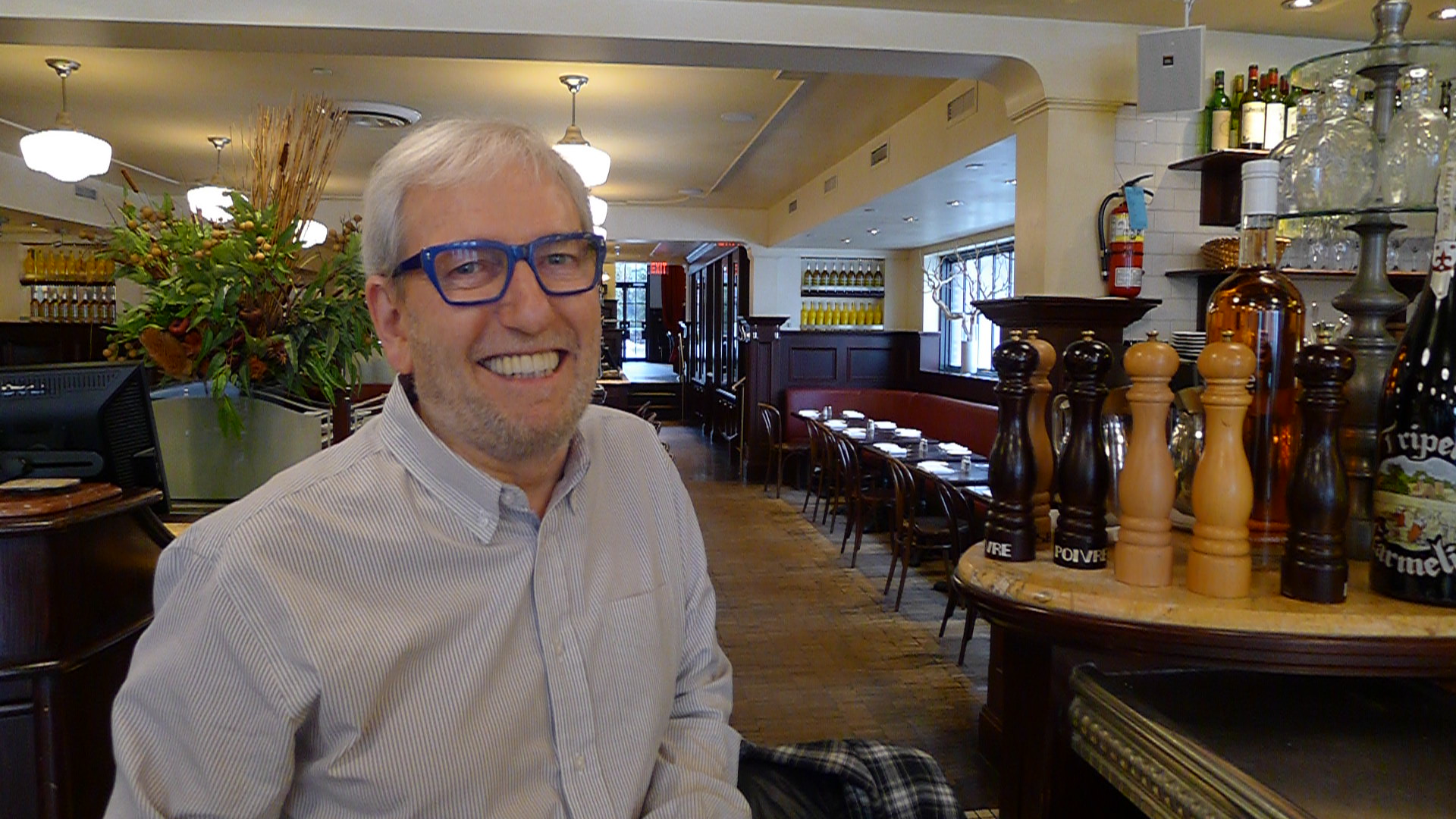
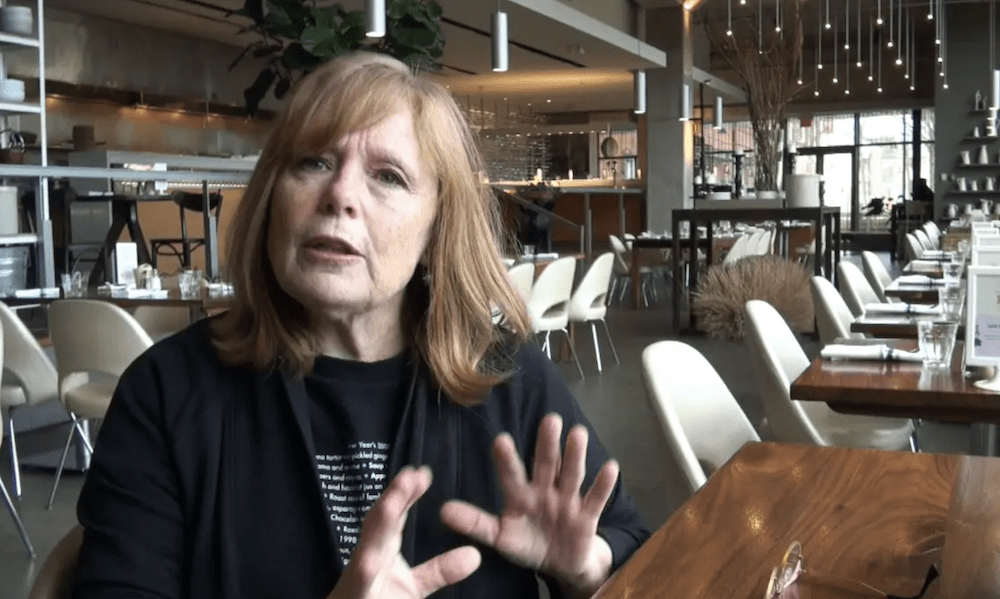

Hi Charles! I would like to come and see you. Would you meet with me for a tea or coffee sometime soon?
Barbara-Anne